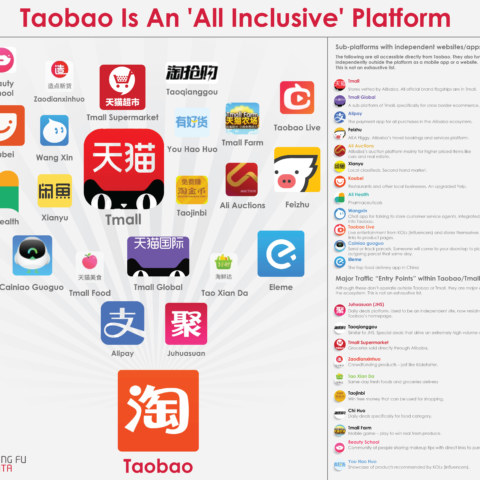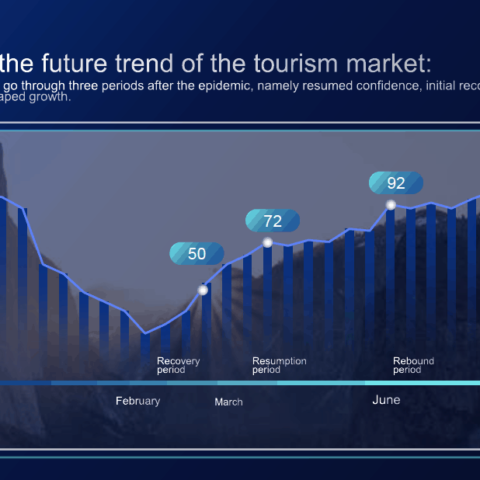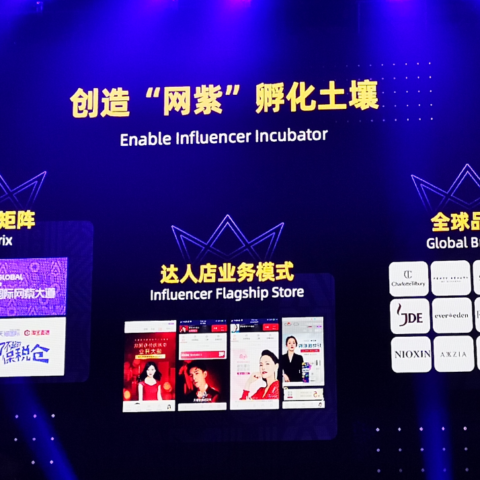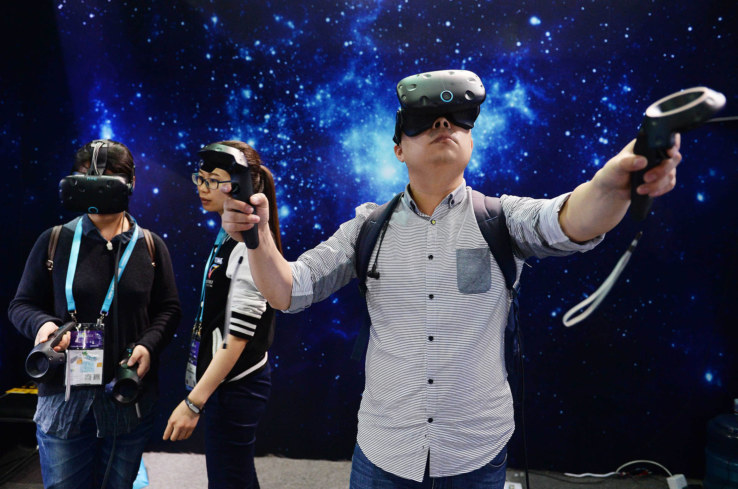Virtual reality Market is booming in China!
Virtual reality market in China: Why should we keep an eye on the Chinese market?
VR market is developing far faster than anywhere else. An infographic made by Daxue Consulting shows that within four years, the world VR market will grow by 1000 %, thus estimate the Chinese market at 8.5 billion dollars in 2025 – in 2016, the Chinese VR market accounted for about 860 million dollars.
Stores proposing an experience of virtual reality blossomed in all Chinese malls. It is a great opportunity for those who can not afford a VR headset. With around50 RMB, they can take place in a comfortable egg-shaped chair with a mask on the eyes and get propelled in a virtual world, most often in a roller coaster cart. The success of those stores is such that the Taiwanese smartphone maker HTC, which owns its range of VR set, said it would open 10,000 of such experience sites in China before December 2016.
Enthusiasm for virtual reality market in China
This decision of HTC is not surprising when one knows the potential of the virtual reality market in China. Income generated by the sell of headsets could reach RMB 850 million in 2016 (this represents a growth of 375% compared to 2015) and even surpass RMB 2 billion at the end of the following year, according to estimates from Analysys International Enfodesk.
Compared to their US competitors, China can produce quality devices in large quantity for a very competitive price.
Those optimistic estimations may be explained by the curiosity of Chinese consumers for virtual reality. According to iResearch, they are 1.4 million to use VR devices in 2016, a figure that could be multiplied by five before 2018 to reach 7.3 million users. Main fields of application of virtual reality quoted by fans today are video and game, but they also expect applications in the sectors of social networks and education, reports a poll from iResearch.
The BAT watching the trend of the virtual reality market in China
Baidu, Alibaba and Tencent (or by their nickname “the BAT”), the three giants of the Chinese Internet, quickly decided to be part of the virtual reality scene. In fact, they are working to broaden the use of this technology far beyond users’ expectations. For instance China’s first e-commerce group Alibaba would like to use virtual reality to improve e-shopping experience: for web users, shopping in the streets of New-Yok and passing on all clothes would be possible without moving from one’s computer, while sellers would promote their products in three dimensions. Tencent, which owns two of the largest Chinese social networks, would be thinking of a chat where participants would directly discuss in a virtual world. Finally, Baidu, China’s first search engine, is working on the production of content adapted to VR technology, which remains one of the main hurdles to the expansion of this technology today. To make those plans real, each of the three groups is heavily investing in specialised VR start-ups.
Entering the Chinese market
On a dynamic market that is already largely structured by the BAT, US competitors may have difficulties to promote their own products. For instance, between June 2014 and January 2016, Google sold 5 million of its VR Cardboard while in six months only, Baofeng’s sales prediction for its own set are about twice this amount. In this context, some foreign companies are trying to create partnerships with their Chinese counterparts in to facilitate their entry into this market. This is the case of Magic Leap which was able to persuade Alibaba to join the team as an investor. Nokia did the same when choosing the supplier of online videos LeEco for the launch of its virtual camera Ozo.
Those partnerships should enable foreign actors to understand the specificities of the Chinese VR market. For instance, Chinese consumers would rather get themselves an experience of virtual reality in amusement parks or dedicated spaces (cybercafés etc.) rather than buying themselves a headset, which is often too expensive for a majority of consumers.
Leave a Comment































